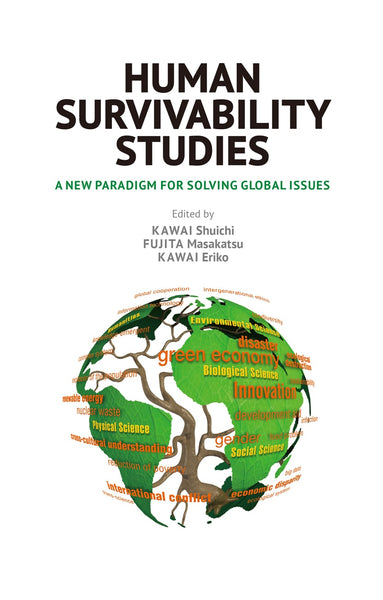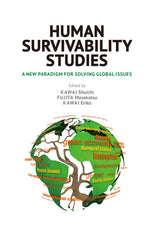Scroll to download from the 'Table of Contents' tab.
Human Survivability Studies
Many In Stock
The challenges we face today are growing conspicuously broad in scale and complex in nature. Human Survivability Studies is a new transdisciplinary field born from the growing awareness of the urgent need to tackle the large-scale environmental and social issues at crisis point in the world today. Based at Kyoto University, the recently established Graduate School of Advanced Integrated Studies in Human Survivability is seeking to develop leaders able to challenge global problems on a number of fronts. Each of the twenty chapters in this volume, written by academics from the Graduate School, looks at critical issues facing humanity from a different perspective, discussing new ideas and scientific methods that will form the basis of human survivability. The aim here is to outline the framework behind the ideas, methodology, and practice of this new scientific paradigm that incorporates knowledge from both the social and natural sciences.
About Editors and Authors
KAWAI Shuichi
KAWAI Shuichi is Professor Emeritus at Kyoto University. He graduated from the Faculty of Agriculture, Kyoto University, in 1971 and received his PhD from the same university in 1980. He became Professor at Kyoto University in 1995. He retired from Kyoto University in 2013 and has served as Chairman of the Japan Wood Research Society and Vice Chairman of the Society of Materials Science, Japan. He specializes in forestry, wood science, wood material science and cultural heritage conservation.
KAWAI Eriko
KAWAI Eriko is Professor at the Shishu-Kan Graduate School, Kyoto University. She specializes in asset management, English education and global human resource development. She obtained a BA from Harvard University in the United States in 1981 and an MBA from INSEAD in France in 1985. After that, she worked as a consultant at McKinsey's Paris office, as fund manager at the investment bank SG Warburg in London, and as an economist in Paris. She took up her professorial position at Kyoto University in 2012.
FUJITA Masakatsu
FUJITA Masakatsu is a Japanese scholar specializing in philosophy. He is Professor Emeritus at Kyoto University and his research focuses on German philosophy, particularly the work of Hegel and Schelling, the history of thought and the history of Japanese philosophy.
Table of contents
Figures
Tables
Photographs
Contributors
Notes
Glossary
Bibliography
Index



